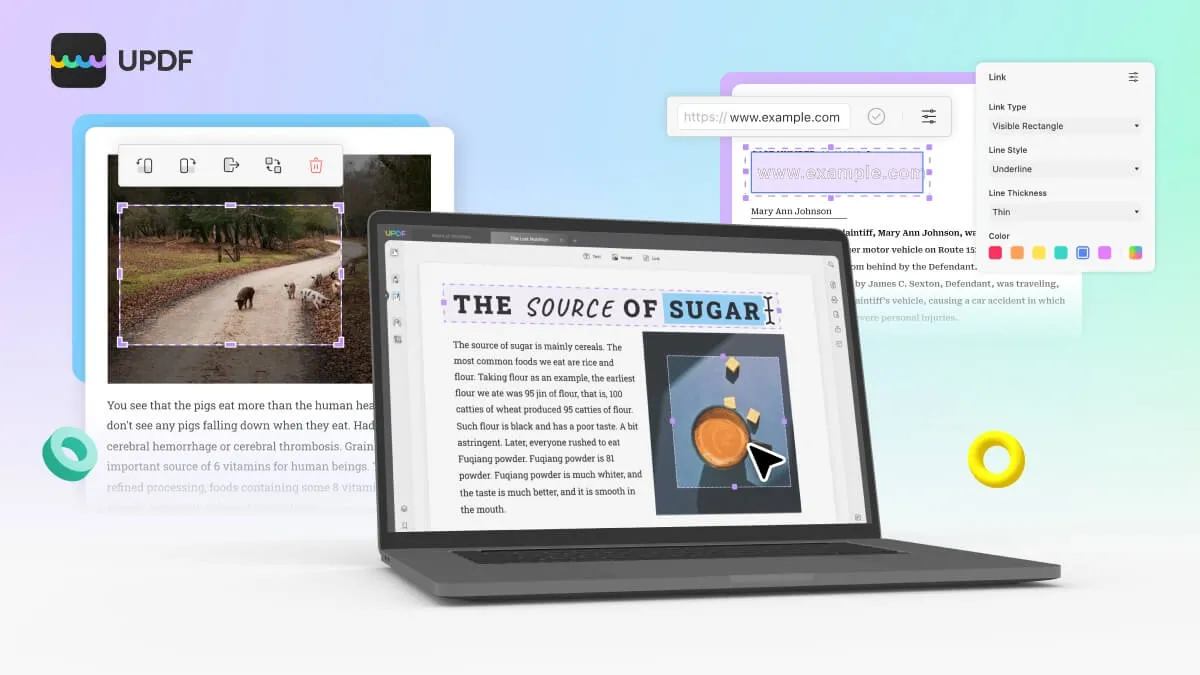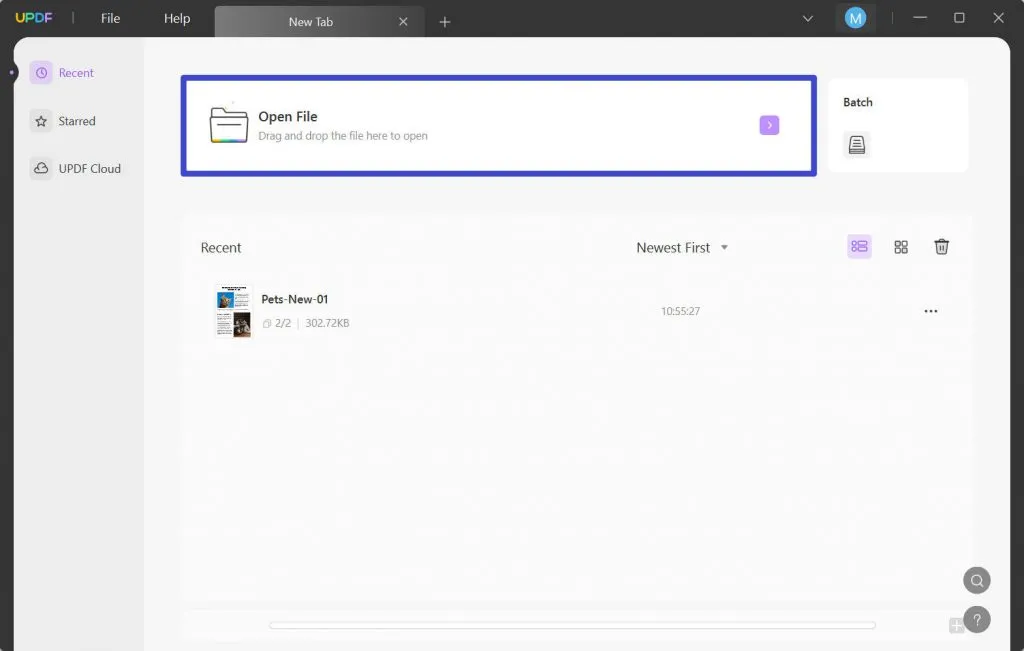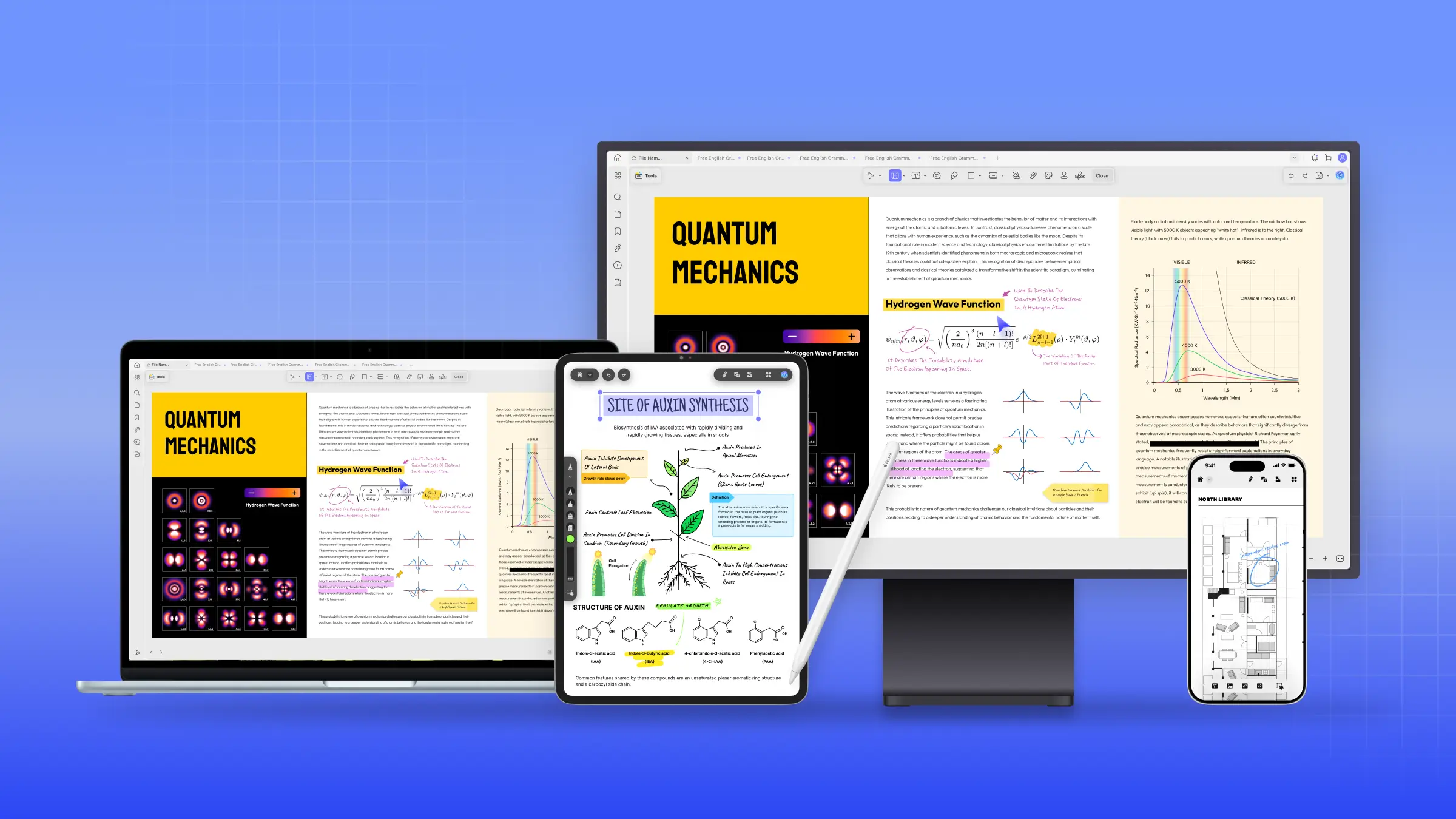Professional goals are not just about impressing your boss or getting a promotion. They are about finding fulfillment in your job. Moreover, they also help you develop yourself as a person. Do you want to take your professional career to new heights? Then setting professional goals for work is the way to go. In this article, we have put together a list of the top 15 goals that will help you grow in your career.
Part 1. What Are Professional Work Goals?
Whether you are just starting in your field or a seasoned professional, setting professional work goals is essential to achieve your dreams. But what exactly are professional work goals? They are targets that guide your career path. Goals, both short-term and long-term, can be powerful motivators that inspire you to push harder and strive for greater achievements.
Whether you are looking to master a new skill or earn a well-deserved promotion, setting and accomplishing your goals can be rewarding. However, it's important to balance challenging yourself and setting attainable objectives. That's why breaking down your goals into smaller, achievable steps is essential. By taking small, measurable actions, you will stay motivated and on track to achieving your ultimate objectives.
Part 2. What Are Good Professional Goals for Work?
Setting professional goals is crucial for personal and career development and can lead to a more fulfilling work life. Having well-defined goals can provide a sense of direction and motivation, whether you are at the beginning of your career or striving to progress. Keeping this in mind, we have highlighted 15 top-rated professional development goals for work examples below to help you advance your career.
Elevate Your Experience with Internship
Acquiring an internship with a prominent company in your field is a guaranteed method to advance your career. This opportunity can significantly enhance your professional growth by offering an exclusive learning experience that cannot be replicated in a traditional classroom environment. You can learn industry skills, practices, and methods through an internship to help you become a well-rounded professional.
You also have the opportunity to expand your network, meeting other professional work goals examples who can become valuable contacts in the future. This is an opportunity to make connections and grow your skills.
Craft Your Core Skills
To excel in your career and reach your professional goals, it is important to identify and continuously enhance your core skills. This includes hard and soft skills essential to performing your job well. Investing in your skills will make you a more valuable employee and open up new opportunities for growth and advancement.
One way to enhance your core skills is to take classes or workshops related to your field. Participating in an internship program enables you to acquire new methodologies and remain informed about the most recent developments in your field.
Build Professional Connections
Attending industry and work-related events is the most effective way to build your professional network. These events include conferences, seminars, training sessions, and casual workplace gatherings. This lets you meet new people, share ideas, and learn about the latest trends. However, bring business cards and follow up with any new connections you make after the event.
In addition to attending events, you can also build your network online through professional goals examples for work and networking sites like LinkedIn. Make sure your LinkedIn profile is up-to-date and contains all the details related to your skills and experience.
Find Career Advancement Within the Company
Advancing your career does not necessarily mean climbing the corporate ladder to a leadership position. Exploring parallel positions within your company is the best way to advance in your career without pursuing a leadership position. This could mean moving to a different department or team that aligns better with your skills and interests.
For example, if you work in marketing but are passionate about data analysis, you might explore opportunities in that department. This allows you to stay within the company while pursuing a new area of interest.
Keep Obtaining Higher Credentials
In achieving success in your career, obtaining higher credentials in your industry is a great place to start. So, why take your credentials to the next level? It is just like pursuing a master's degree. It not only opens up new employment and salary opportunities but can also position you as an expert in your field. Imagine being recognized as a leader in your industry because of your advanced degree.
Additionally, an internship can aid you in acquiring proficiency in various aspects of your organization, honing fresh competencies, and establishing connections with peers and mentors in your industry.
Negotiate for an Ideal Salary
For numerous professional development goals for work examples, a substantial salary increase serves as a significant incentive. Apart from providing economic stability, it can also enhance your self-assurance in your job role. Thus, it is crucial to allocate some time to contemplate your desired income. Examine industry benchmarks, the cost of living in your region, and your perception of skills and experience's worth.
After that, assess your present compensation package meticulously. If you are discontented with your current salary or growth prospects, it might be the right moment to seek a new job opportunity. Research job openings in your industry and see if they offer better salary packages.
Discuss and Shift to a Related Career
Pursuing a new career path may be the key to finding greater satisfaction and happiness in your professional life. It can also offer opportunities for a higher salary and professional goals examples for work growth. Begin by considering what your ideal career is. Research careers that align best with your experience and explore the education, skills, and experience required for those positions.
However, consider contacting professional connections or mentors if your ideal career is in a completely different industry. Refer to some advice on what it takes to be successful.
Develop Skills to Become an Expert in Your Field
Becoming an expert in the field takes time and effort. Start by researching what credentials and experience current industry experts hold. Look at job postings and profiles of successful professionals in your field. Identify their skills and qualifications, and consider how you can obtain them. Education and training opportunities are a great place to start.
Consider pursuing advanced degrees, certifications, or specialized relevant training programs. These can help you gain new skills and knowledge to stand out as an expert.
Increase Your Chances of Winning an Award in the Industry
Winning an industry award can be a major accomplishment and can significantly impact your career. It can boost your values with industry experts, establish your credentials, and open new employment opportunities. First, research the types of awards available in your industry. Then, look at the criteria for each award and the previous winners.
Identify the most relevant awards to your skills and expertise, and plan to apply. Consider what makes you unique and innovative in your field to increase your chances of winning an award with a variety of professional development goals for work examples.
Learn to Collaborate for Better Teamwork
Collaboration is essential in many jobs, especially those that require innovation and teamwork. Strong collaboration skills can help you work effectively with others, communicate better, and achieve common goals. Understand the importance of teamwork and communication. Next, seek out learning opportunities to develop your collaboration skills.
Attend seminars, workshops, or training sessions on teamwork, communication, and leadership. These can provide practical skills and strategies for working effectively with others.
Suggest More Innovative Methods
Embarking on the path to a flourishing career demands help you identify the professional objectives that will aid you in accomplishing your desired outcomes. Look for ways to innovate and create new standards. An example of this would be if you work in a factory, you could implement a novel quality assurance testing approach that is less expensive and safer than the current one.
This innovation can make you a more attractive candidate for future employment opportunities. Therefore, do your research and identify and help improve the quality of products and services.
Solidify Your Credibility Through a Personal Brand
Creating a personal brand is an influential approach to distinguishing yourself from your competitors and establishing yourself as a trailblazer in your respective industry. While it may seem similar to starting a business, it is about showcasing your unique skills, expertise, and personality to create a recognizable identity. Your brand is your unique promise of value to your audience.
To identify your brand, consider the strengths and qualities that set you apart. Consider leveraging these qualities to create a brand that resonates with the target audience.
Own Your Mistakes and Rectify Them
Errors, ranging from minor mishaps to significant slip-ups, are an unavoidable aspect of our lives, including our professions. Nevertheless, how we respond to our mistakes can significantly impact our careers. The first phase of handling errors is admitting them. Don't attempt to excuse or rationalize them. Rather, accept accountability and acknowledge your wrongdoing.
This showcases maturity and a readiness to develop and evolve. The second phase is to learn from your errors. Moreover, this will enable you to prevent making the same mistake again and indicate your dedication to progress.
Maintain a Balanced Work-Life
Being professional goals examples for work, we frequently experience the urge to dedicate all of our time and energy to our jobs. However, ignoring our personal lives and relationships may lead to burnout, stress, and, eventually, a decline in our job performance. Therefore, it is crucial to maintain a work-life balance. Achieving a work-life balance entails setting limits and reserving time for activities that hold significance outside of work.
This could include scheduling periods for social engagements or merely unwinding and reinvigorating oneself. It is also essential to prioritize relationships with family and friends, as they provide invaluable support.
Adhere to the Deadlines
In the professional world, meeting deadlines is critical to being a reliable employee. While promising to complete a task by a certain time, following through on that commitment is essential. When you consistently meet deadlines, you demonstrate to your employer that you are dependable and trustworthy. This can help you build a positive reputation within your organization.
Working towards meeting deadlines can help you stay focused and motivated to complete tasks efficiently. This can increase your overall productivity and help you achieve better results in your work.
Part 3. How to Write Professional Goals for Work?
Goals regarding professional work can only be achieved when you reflect on your needs. There are countless steps and ways to narrow down all the options and apply the effective ways only. Below are the 10 best steps to up your career aspirations and decide accordingly.
Identify Your Long-Term Career Aspirations
To guarantee that your profession is progressing in the appropriate direction, it is vital to contemplate where you intend to be in the next five to ten years and the measures you must undertake to accomplish that. By establishing practical objectives that match your professional ambitions, you can stay motivated and concentrate on your long-term goals.
Prioritize Your Goals
Though you may have several professional objectives, it is vital to prioritize them according to their level of significance and potential influence on your profession. Start focusing on the most relevant goals to your overall career vision. You can channel your professional work goals, energy, and resources more effectively.
Use Data to Inform Your Goals
Using data and metrics to guide your goals can be a powerful way to make them more tangible and measurable. For instance, if you aim to increase sales, you could set a specific target percentage you want to achieve within a certain timeframe.
Make Your Goals Challenging
As it can be beneficial to aim high and challenge yourself, setting unattainable goals can be demotivating and lead to frustration. Therefore, it's crucial to consider your current skills, resources, and circumstances when setting challenging goals. This approach will help you to build resilience and expand your capabilities.
Break Down Larger Goals
When facing large goals, breaking them down into smaller, more achievable milestones can make them less overwhelming and easier to manage. By setting incremental targets, you can better track your progress and stay motivated.
Consider Potential Obstacles
Prior to initiating a goal, it is crucial to anticipate any potential obstacles or challenges that may arise in the process. This way, you can prepare for them and develop a strategy to overcome them. This approach will enable you to stay focused and on course toward achieving your goals, despite any hindrances or roadblocks that may come your way.
Create an Action Plan
To achieve your goals, developing an action plan that outlines specific steps and establishes timelines for each one is crucial. This plan should be broken down into smaller, manageable tasks achievable within a reasonable time frame. This approach will keep you accountable and motivated along the professional goals for work way.
Include Involvement
Involving others in your goal-setting process can provide numerous benefits, such as feedback, support, and accountability. Colleagues, mentors, or supervisors can offer different perspectives, ideas, and suggestions to help you refine and improve your goals.
Review and Adjust Goals Regularly
Life is unpredictable, and unexpected events can occur, causing changes in priorities, timelines, or even the goal itself. Reviewing your goals can help you assess your progress, identify any challenges, and make necessary adjustments to keep you on track.
Celebrate Your Successes
Celebrate your successes, whether treating yourself to something special or simply acknowledging your accomplishments with a colleague or supervisor. Recognizing your successes can help you stay motivated and engaged in goal-setting.
Part 4. How to Achieve Professional Work Goals?
Achieving professional goals for work requires a strategic approach. Whether advancing in your current role, switching careers, or starting a business, the path to success often involves planning, discipline, and continuous learning. Following are some of the steps that you need to follow to achieve your professional goals:
1. Create a Planner and Keep Tracking
Planning and tracking tasks are crucial in enhancing productivity and achieving success. Maintaining a planner can aid in staying organized and focused, but it can be challenging to discover the ideal planner template that meets your requirements. UPDF is a thorough and user-friendly tool that enables you to modify, annotate, and personalize PDF files, including planner templates.
Windows • macOS • iOS • Android 100% secure

The UPDF daily planner template is designed to help you organize your daily, weekly, or monthly tasks efficiently. It includes sections for notes, appointments, and to-do lists, making it easy to prioritize your tasks and ensure that you complete all important deadlines. Additionally, UPDF planner templates are fully customizable, allowing you to tailor them to your unique needs and preferences.
Pros of Using this Enhanced Tool to Help You Customize Template
- Blazing-Fast Performance
- Intuitive and Easy-to-Use Interface
- Watermarking
- UPDF Cloud Support
- Electronic Signature
Straightforward Steps to Customize the Planner Smoothly
Follow the steps below to help you organize, customize, and modify the text in your daily planners accordingly:
Step 1: Download UPDF for Your Device
To download the package, only the official UPDF website is preferred to avoid any risks. Explore the website and tap the "Free Download" button in the top-right corner. The package will be downloaded within minutes.
Windows • macOS • iOS • Android 100% secure
Step 2: Launch UPDF and Find the Template
Install the software on your computer when downloading is completed, and find the "Open File" button on the home screen. Click this button, find your file, and open it to start customizing it.

Step 3: Modify the Planner Text
After opening your template file into the UPDF, double-click where you want to edit and add or remove the text. Moreover, you can also change text font, size, and color.

Step 4: Print the Finalized Template
When you incorporate and customize the planner template, navigate to the "File" tab located in the upper left corner and select the "Print" option from the drop-down menu that appears. When the new window pops up, select your printer, and adjust its properties. At last, click the "Print" button to print it successfully.
Windows • macOS • iOS • Android 100% secure
2. Keep Track of Your Professional Accomplishments
Tracking your accomplishments along the way is essential when working towards your professional goals. This practice helps during performance evaluations and provides a sense of satisfaction and motivation as you see your progress. Adopting this method is very important for a proactive approach to ensure you can easily highlight your successes.
You can start by keeping a record of your achievements throughout the year. Use a document or spreadsheet to create a simple and easily accessible list. This way, you can document your successes as they happen, preventing them from slipping your mind later on. Also, when noting down your accomplishments, strive to be specific and provide relevant details. This will help you to ease the goal-achieving process.
3. Set Regular Check-ins
Setting work objectives is not a one-time conversation that happens at the start of a performance period. Just like any effective strategy, professional goals need to be adaptable to stay relevant and impactful. By scheduling periodic formal and informal meetings, you can discuss your performance, reassess goals, and make necessary adjustments based on current realities and priorities.
You can begin by taking the initiative to schedule regular meetings with your supervisor to discuss your performance and goals. By proactively seeking feedback and guidance, you demonstrate your commitment to growth and improvement. However, prepare an agenda before each meeting that outlines the topics you want to cover. This will help you stay focused and ensure that important points are not overlooked.
4. Clarify Team Structure
Each individual and group within the business plays a dual role as both a provider and recipient of assistance in most situations. By taking the time to truly grasp these dynamics, you will be better equipped to identify actionable insights that can significantly improve the efficiency of your professional work goals. To start, invest time in thoroughly mapping out the roles and responsibilities of each team member.
This exercise will enable you to gain a holistic view of the contributions they make and the areas where they may require support. Additionally, recognize that the interrelationships between team members and different departments are equally important. Foster open communication channels and encourage collaboration across teams. This can help identify areas for improvement and professional development.
5. Engage in Work, Receive Feedback, and Repeat
Achieving professional work goals requires a combination of knowledge, feedback, and confidence. Gathering as much information as possible about your work performance is crucial to succeed. This includes both positive and negative feedback. While negative comments may initially seem discouraging, they can provide valuable insights into areas that require improvement.
Notably, confidence plays a significant role in overall performance, emphasizing the importance of cultivating self-assurance. Positive comments have been proven to have a positive impact on performance. They act as a boost for motivation to pursue excellence and surpass the goal limits.
Ending Note
All in all, setting professional goals for work is crucial to achieving success and advancing your career. Nevertheless, it is crucial to ensure that your goals are realistic and achievable rather than setting yourself up for frustration and disappointment. Fortunately, you can pursue countless professional goals to improve your skills and knowledge, and we have listed the top 15 above.
In addition, to help you stay organized and on track with your professional goals, we highly recommend using UPDF’s daily planner template and customizing them using UPDF. Due to its user-friendly interface and customizable features, UPDF is an excellent tool for monitoring your goals and progress. Start setting those professional goals and watch yourself reach new heights of success.
Windows • macOS • iOS • Android 100% secure
 UPDF
UPDF
 UPDF for Windows
UPDF for Windows UPDF for Mac
UPDF for Mac UPDF for iPhone/iPad
UPDF for iPhone/iPad UPDF for Android
UPDF for Android UPDF AI Online
UPDF AI Online UPDF Sign
UPDF Sign Edit PDF
Edit PDF Annotate PDF
Annotate PDF Create PDF
Create PDF PDF Form
PDF Form Edit links
Edit links Convert PDF
Convert PDF OCR
OCR PDF to Word
PDF to Word PDF to Image
PDF to Image PDF to Excel
PDF to Excel Organize PDF
Organize PDF Merge PDF
Merge PDF Split PDF
Split PDF Crop PDF
Crop PDF Rotate PDF
Rotate PDF Protect PDF
Protect PDF Sign PDF
Sign PDF Redact PDF
Redact PDF Sanitize PDF
Sanitize PDF Remove Security
Remove Security Read PDF
Read PDF UPDF Cloud
UPDF Cloud Compress PDF
Compress PDF Print PDF
Print PDF Batch Process
Batch Process About UPDF AI
About UPDF AI UPDF AI Solutions
UPDF AI Solutions AI User Guide
AI User Guide FAQ about UPDF AI
FAQ about UPDF AI Summarize PDF
Summarize PDF Translate PDF
Translate PDF Chat with PDF
Chat with PDF Chat with AI
Chat with AI Chat with image
Chat with image PDF to Mind Map
PDF to Mind Map Explain PDF
Explain PDF PDF AI Tools
PDF AI Tools Image AI Tools
Image AI Tools AI Chat Tools
AI Chat Tools AI Writing Tools
AI Writing Tools AI Study Tools
AI Study Tools AI Working Tools
AI Working Tools Other AI Tools
Other AI Tools PDF to Word
PDF to Word PDF to Excel
PDF to Excel PDF to PowerPoint
PDF to PowerPoint User Guide
User Guide UPDF Tricks
UPDF Tricks FAQs
FAQs UPDF Reviews
UPDF Reviews Download Center
Download Center Blog
Blog Newsroom
Newsroom Tech Spec
Tech Spec Updates
Updates UPDF vs. Adobe Acrobat
UPDF vs. Adobe Acrobat UPDF vs. Foxit
UPDF vs. Foxit UPDF vs. PDF Expert
UPDF vs. PDF Expert






 Enrica Taylor
Enrica Taylor 



